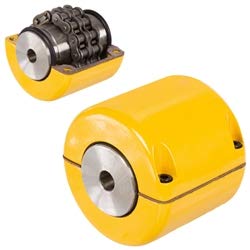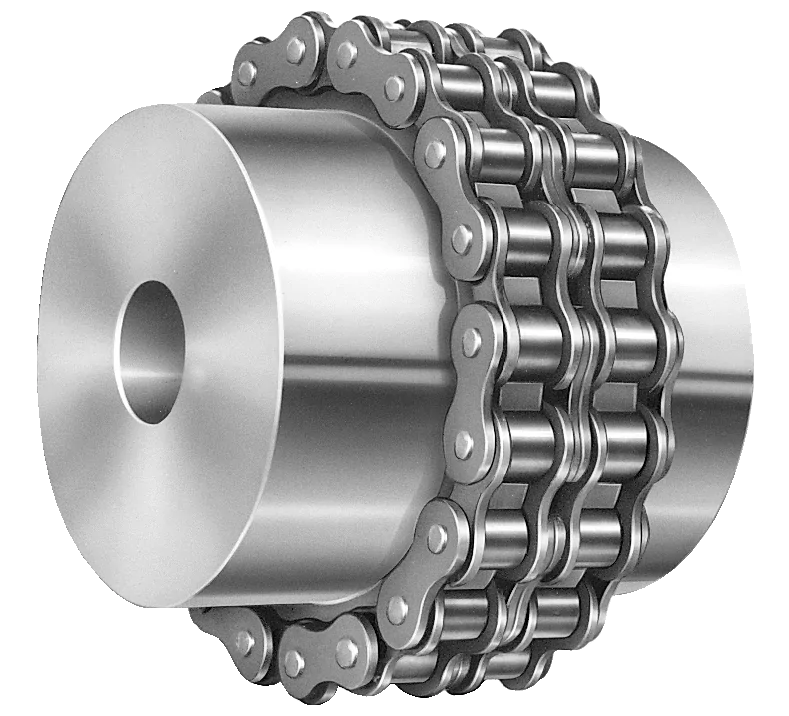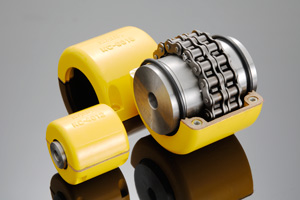Product Description
Densen customized roller chain coupling,chain coupling for chain mortising machine
We have professionals to solve your questions, please contact us directly!
| Product Name | Densen customized roller chain coupling,chain coupling for chain mortising machine |
| DN mm | 16~190mm |
| Rated Torque | 40~25000 N·m |
| Allowable speed | 4500~200 kN·m |
| Material | 45#steel |
| Application | Widely used in metallurgy, mining, engineering and other fields. |
Product show
Company Information
Equipment
Application Case
Typical case of diaphragm coupling applied to variable frequency speed control equipment
JMB type coupling is applied to HangZhou Oilfield Thermal Power Plant
According to the requirements of HangZhou Electric Power Corporation, HangZhou Oilfield Thermal Power Plant should dynamically adjust the power generation according to the load of the power grid and market demand, and carry out the transformation of the frequency converter and the suction fan. The motor was originally a 1600KW, 730RPM non-frequency variable speed motor matched by HangZhou Motor Factory. The speed control mode after changing the frequency is manual control. Press the button speed to increase 10RPM or drop 10RPM. The coupling is still the original elastic decoupling coupling, and the elastic de-coupling coupling after frequency conversion is frequently damaged, which directly affects the normal power generation.
It is found through analysis that in the process of frequency conversion speed regulation, the pin of the coupling can not bear the inertia of the speed regulation process (the diameter of the fan impeller is 3.3 meters) and is cut off, which has great damage to the motor and the fan.
Later, they switched to the JMB460 double-diaphragm wheel-type coupling of our factory (patent number: ZL.99246247.9). After 1 hour of destructive experiment and more than 1 year of operation test, the equipment is running very well, and there is no Replace the diaphragm. 12 units have been rebuilt and the operation is in good condition.
Other Application Case
Spare parts
Packaging & Shipping
Contact us
/* January 22, 2571 19:08:37 */!function(){function s(e,r){var a,o={};try{e&&e.split(“,”).forEach(function(e,t){e&&(a=e.match(/(.*?):(.*)$/))&&1

Can chain couplings transmit both torque and linear motion?
No, chain couplings are primarily designed to transmit torque between rotating shafts and are not intended for transmitting linear motion. The main function of a chain coupling is to connect two shafts in order to transfer rotational power from one shaft to another.
Chain couplings achieve torque transmission through the engagement of the roller chain with the sprockets on the connected shafts. As the driving sprocket rotates, it imparts rotational motion to the chain, which in turn rotates the driven sprocket connected to the other shaft. This mechanism allows the torque to be transmitted from one shaft to the other.
However, chain couplings do not provide a means for converting or transmitting linear motion. They are not designed to handle axial displacement or linear forces. Attempting to use a chain coupling for transmitting linear motion would result in inefficient and unreliable operation, as the coupling is not designed to handle the specific requirements and forces associated with linear motion.
For applications that require the transmission of linear motion, there are other types of couplings specifically designed for this purpose. Examples include rack and pinion systems, linear couplings, or specialized linear motion couplings that incorporate mechanisms such as ball screws or lead screws. These couplings are designed to convert rotary motion into linear motion or to transmit linear forces directly.
It is important to select the appropriate coupling type based on the specific requirements of the application, whether it involves torque transmission or the transmission of linear motion. Consulting the manufacturer’s specifications, guidelines, or seeking expert advice can help ensure the correct coupling selection for a particular application.

What is the maximum torque capacity of a chain coupling?
The maximum torque capacity of a chain coupling can vary depending on several factors, including the size and design of the coupling, the type and quality of the components used, and the application requirements. It is important to refer to the manufacturer’s specifications and guidelines for the specific chain coupling being used. These specifications typically provide the maximum torque capacity or the maximum allowable torque for the coupling.
The maximum torque capacity is usually expressed in torque units, such as Newton-meters (Nm) or foot-pounds (ft-lb). It represents the maximum amount of torque that the chain coupling can transmit without exceeding its design limits or risking premature failure.
When selecting a chain coupling, it is crucial to consider the torque requirements of the application and choose a coupling with a sufficient torque capacity. Factors such as the power requirements, operating conditions, and misalignment tolerance should be taken into account to ensure that the selected coupling can handle the required torque.
It is important to note that exceeding the maximum torque capacity of a chain coupling can lead to various issues, including accelerated wear, excessive stress on the components, and potential coupling failure. Therefore, it is recommended to always operate the chain coupling within its specified torque limits to maintain its reliability and longevity.
For accurate and precise information regarding the maximum torque capacity of a specific chain coupling, it is necessary to consult the manufacturer’s documentation or contact the manufacturer directly. They can provide detailed information based on the specific design and specifications of the coupling.

What are the advantages of using chain couplings?
-
Flexible and Reliable Connection: Chain couplings provide a flexible and reliable connection between rotating shafts. They can accommodate misalignment between the shafts, including angular, parallel, and axial misalignments. This flexibility helps to reduce stress on the shafts and bearings, resulting in smoother operation and extended equipment lifespan.
-
High Torque Capacity: Chain couplings are capable of transmitting high torque loads. The positive engagement between the sprocket teeth and the chain rollers allows for efficient power transfer, making them suitable for applications that require the transmission of substantial rotational forces.
-
Mechanical Protection: Chain couplings act as mechanical protection by providing a breakable link in the power transmission system. In case of sudden overloads or jams in the system, the chain can break, preventing damage to the machinery components. This feature helps to protect expensive equipment and minimizes downtime for repairs.
-
Misalignment Compensation: Chain couplings can compensate for misalignment between the connected shafts. They can tolerate angular misalignment, where the shafts are not perfectly aligned at an angle, parallel misalignment, where the shafts are offset from each other, and axial misalignment, which refers to displacement along the axis of the shafts. This ability to accommodate misalignment helps to prevent excessive stress and premature wear on the shafts and bearings.
-
Wide Range of Applications: Chain couplings are versatile and find applications in various industries and machinery. They are used in conveyors, pumps, crushers, mixers, industrial drives, and many other systems. The ability to handle different torque requirements, speed variations, and misalignment conditions makes chain couplings suitable for a wide range of power transmission needs.
-
Easy Maintenance: Chain couplings are relatively easy to maintain. Regular lubrication of the chain and sprockets helps to reduce friction and wear, ensuring smooth operation and extending the life of the coupling. Maintenance tasks such as chain tensioning and inspection can be carried out without requiring complex tools or specialized training.
In summary, the advantages of using chain couplings include their flexible and reliable connection, high torque capacity, ability to compensate for misalignment, mechanical protection, wide range of applications, and ease of maintenance. These features make chain couplings a preferred choice in various industries where efficient power transmission and reliable operation are vital.


editor by CX 2024-03-11
by
Tags:
Leave a Reply